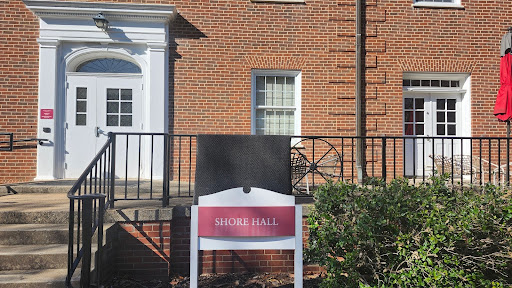All month long, fast-food workers from across the United States have been protesting for $15 hourly wages and union rights. “Whatever It Takes” is the motto of the movement. On Sept. 4, the protesters proved those words are a battle cry as they walked out of their jobs and took to the streets, chanting “We believe that we will win,” and “We can’t survive on $7.25.”
Durham police arrested a total of 26 people engaging in non-violent civil disobedience after monitoring their activities for four and half hours. This number includes two organizers for the campaign as well as an attorney representing the protesters.
“Not only do fast-food jobs pay so little that a majority of industry workers are forced to rely on public assistance, but many of them don’t even see all of the money they earn,” Laura Brandon from Low Pay is Not OK, the movement’s official website, told The Guilfordian.
“It can be really difficult having to pay rent and car insurance on a McDonald’s wage, and that’s before taxes get taken out,” said one McDonald’s employee who asked to remain anonymous. “If you have kids, that makes it even harder because that’s probably half of your paycheck right there … going to buying things for (your kids.)”
The common misconception about workers in the fast-food industry is that they are merely teenagers looking for extra pocket change to spend on the weekends.
In a recent 2014 study, The Center for Economic and Policy research found that 40 percent or more of fast-food workers are 25 or older, more than 30 percent have college experience of some sort and a quarter of the workers are parents.
Despite these facts, Executive Director of the National Council of Chain Restaurants Rob Green condemned the strikes as irresponsible.
“The activities being coordinated, financed and facilitated by labor unions, desperate for new membership dues, accomplish nothing,” said Green in a press release from the day of the strikes.
The campaign began back in November 2012, when 200 fast-food workers walked away from their jobs in New York City demanding higher wages and the right to form a union. The movement has since spread to almost 150 cities — including Greensboro.
“Increasing the federal minimum wage will boost the earnings for some 28 million low-wage workers nationwide,” says the U.S. Department of Labor website. “Raising the federal minimum wage is an important part of strengthening the economy. A raise for minimum wage earners will put more money in more families’ pockets, which will be spent on goods and services, stimulating economic growth locally and nationally.”
Some economists, however, caution that a change of this magnitude will not, and should not, occur overnight.
“A small increase over time would be beneficial, but I fear that one sudden increase (like the $15 an hour wages proposed by the protestors) could break the country financially,” said Natalya Shelkova, assistant professor of economics.
Others question the wisdom of legislating wages at all.
“I feel like companies should be doing what they can to help their employees on their own because then that’s like an incentive for the employees to sell more products,” said junior Alexander Morales, candidate for secretary of the North Carolina Federation of College Republicans. “(It) seems like more of a business issue and not a governmental one.”
Whatever the solution, workers will not give up easily. It seems clear that they will continue doing “whatever it takes” until they have achieved victory.













nut milk bag fabric • Sep 24, 2014 at 7:13 pm
Greetings! I’ve been following your site for
a long time now and finally got the courage to go ahead
and give you a shout out from Austin Tx! Just wanted
to tell you keep up the excellent job!